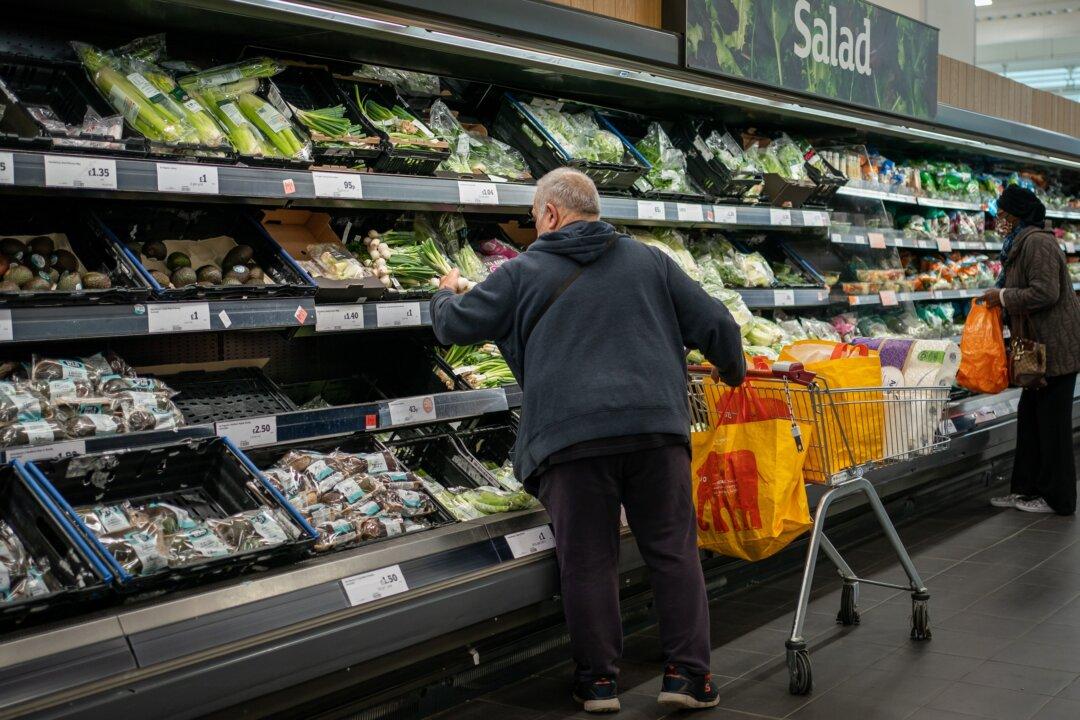Food inflation in the UK has fallen for the first time in almost two years, with experts suggesting that lower energy and commodity costs are driving food prices down.
A report by the British Retail Consortium (BRC) and Nielsen, published on Tuesday, showed a deceleration from 15.7 percent to 15.4 percent in food inflation in the year to May.





